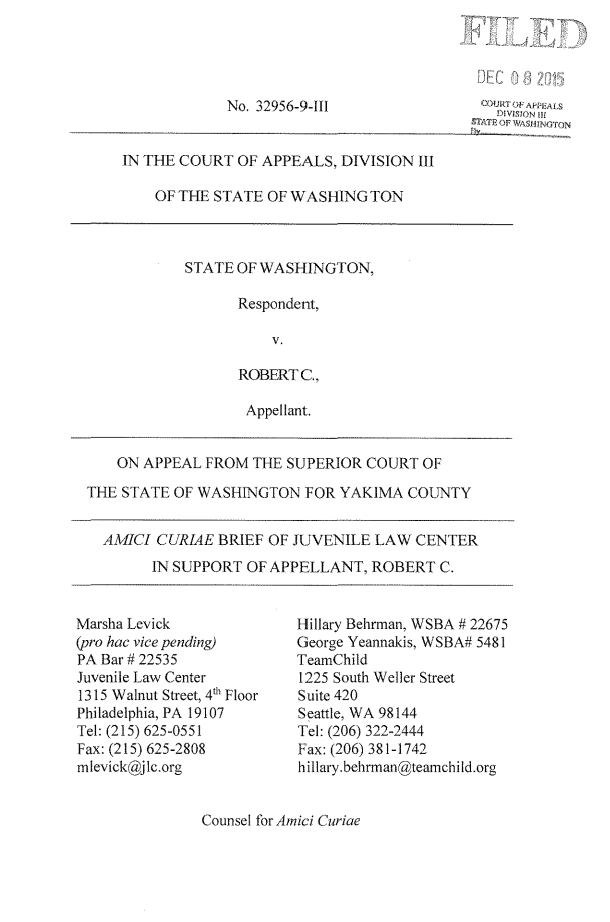
Summary of Argument
Washington Courts and the United States Supreme Court are clear that age is "far more than a chronological fact," and that adolescent development is relevant to legal interpretation. JD.B. v. North Carolina, 13 I S. Ct. 2394, 2403, 180 L. Ed. 2d 310 (2011). Washington Courts have also been clear that emerging research about adolescent decision-making should be taken into account even when applying laws that went into effect years ago. State v. O'Dell, 183 Wn.2d 680, 358 P.3d 359 (2015) (en banc). This jurisprudence highlights the importance of Washington's law establishing that a child between the ages of 10 and 12 is presumed to lack capacity to commit a crime, RCW 9A.04.050. It also clarifies the significant weight courts should give to the child's age and maturity when assessing capacity.
The trial court recognized Robert c.' s youth and immaturity; it erred when it failed to find that he lacked capacity. Moreover, Robert was an abused child reacting to a threatening adult. When assessing whether Robert understood the wrongfulness of his actions, the trial court failed to adequately take into account the research on childhood stress disorders and the evidence of Robert's PTSD. Because Robert lacked capacity, the court should have ended the inquiry and dismissed the case. If this Court holds otherwise, however, the case should be remanded for a new adjudicatory hearing because Robert's counsel was ineffective by failing to raise self-defense. Amici write separately to explain why the "reasonable child" standard must be applied when a child like Robert C. raises self-defense.